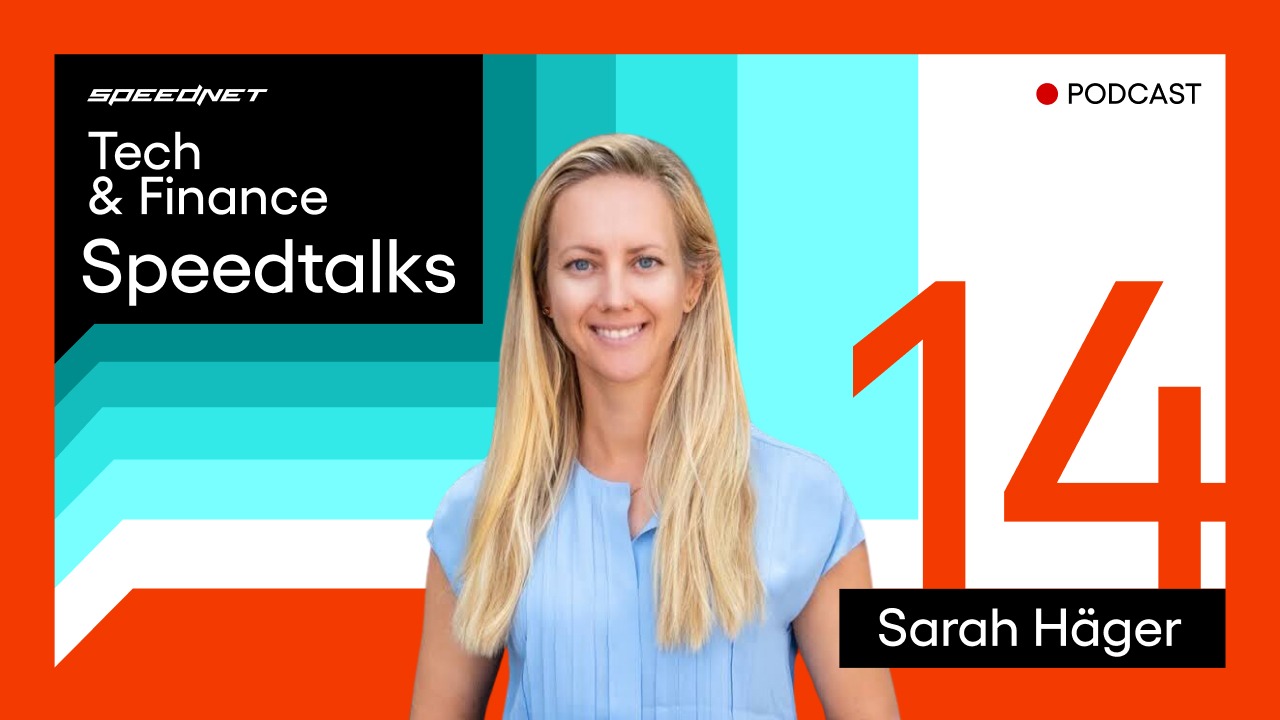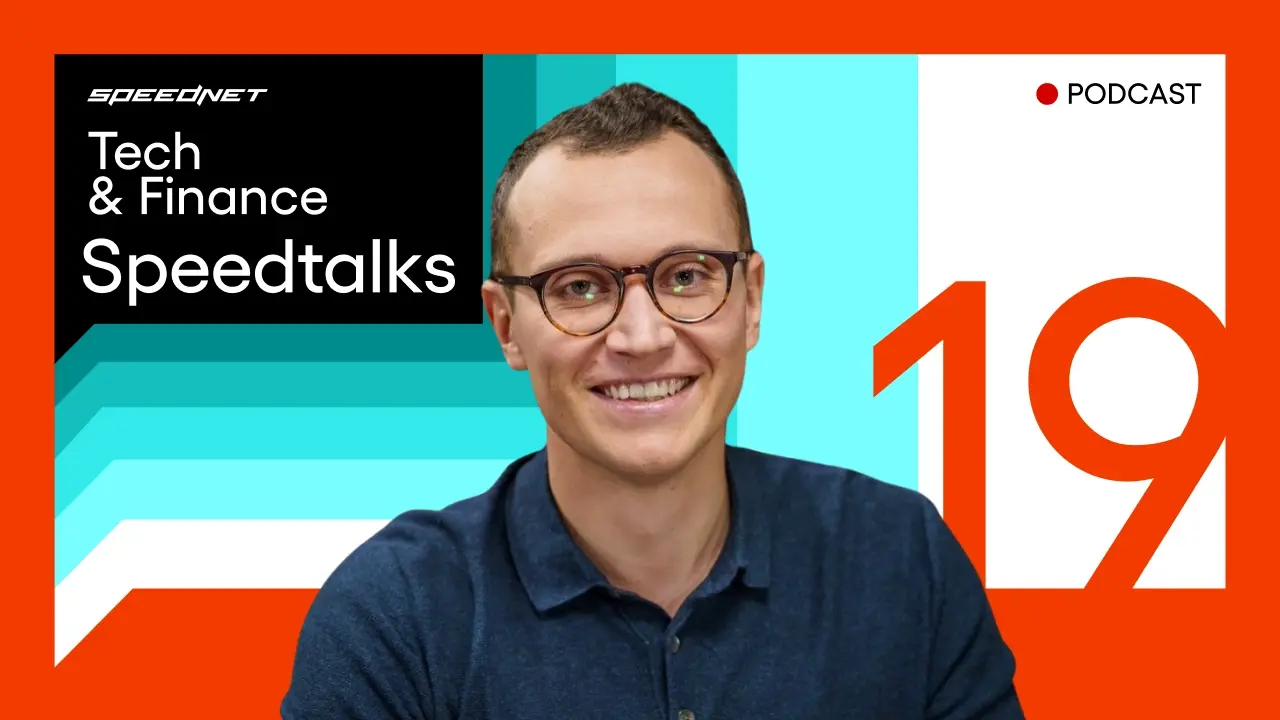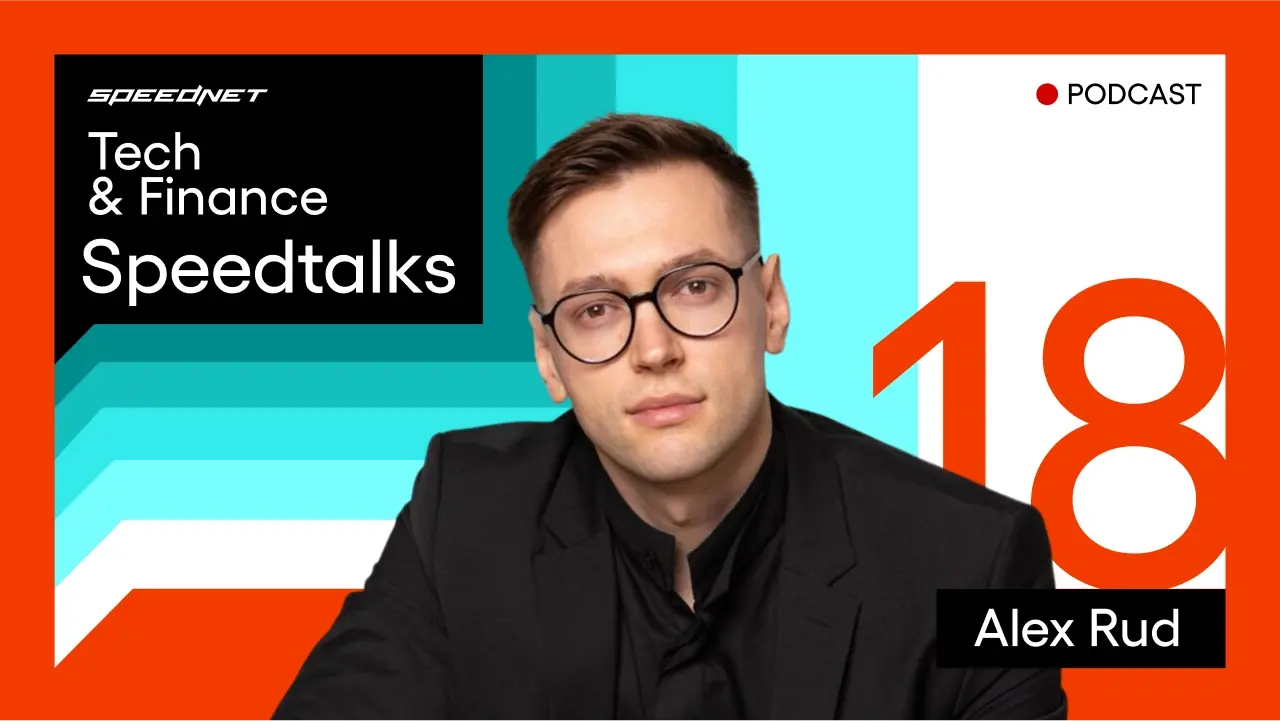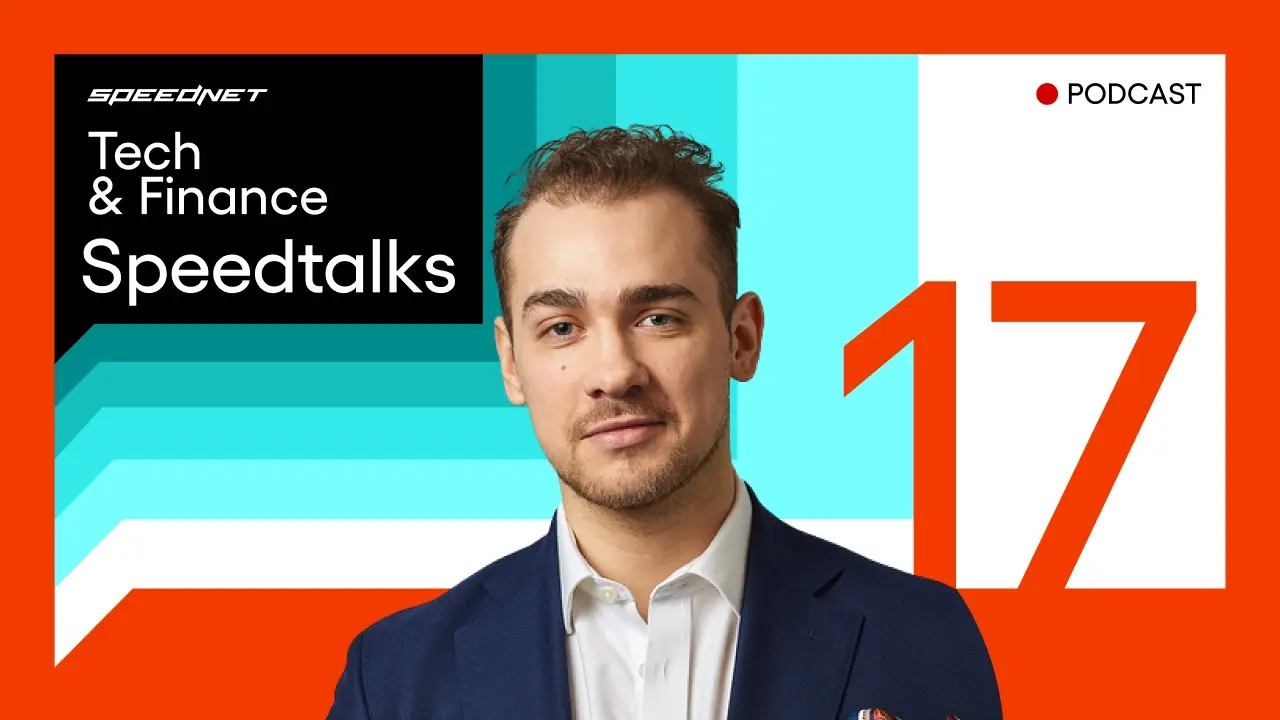014: Open banking in 2025 with Sarah Häger


Transcription:
Michał Grela: Hello and welcome to another episode of Speedtalks, a podcast about everything tech in financial services. Today’s topic is open banking in 2025 and beyond, and I couldn’t have had a better guest to discuss it. My guest today is Sarah Häger, the CCO at Enable Banking.
Sarah, great to have you here!
Sarah Häger: Thank you for the invitation.
Michał Grela: Let’s start with a bit of background. Could you tell us more about Enable Banking and your role there? What are you responsible for, and what excites the company the most right now?
Sarah Häger: At Enable Banking, I’m responsible for all things commercial—customer relations, support, marketing, and product development from a commercial perspective. I also drive innovation from this standpoint, working with a variety of customers across different industries. We collaborate with digital-native companies as well as more traditional businesses, such as century-old airlines.
I’ve been working in open banking for about nine years—seven of those in a major Nordic bank, and the past two and a half years from the fintech side.
Michał Grela: For those unfamiliar with open banking, how would you explain it in the simplest terms, say, to a four-year-old?
Open banking, in its absolute simplest form, is like Uber
Sarah Häger: Open banking, in its absolute simplest form, is that you’re giving access to your transactions in your internet bank to a different application that would help you with something. Think of it like Uber: you share your location, and the driver comes right to you. With open banking, you share your transaction data, and that can help you get a loan, streamline business processes, or receive personalised financial insights.
Michał Grela: Enable Banking has played a key role in advancing open banking across Europe. What standout successes have you seen so far? Are there any unexpected or best use cases that have particularly excited you? Can you share some success stories? The context here of the question is that many people struggle to grasp the tangible benefits—can you share two or three compelling use cases?
Sarah Häger: Sure! One example is personal. When I was working for the bank, they figured out I spoke German, so they sent me on a contract to Germany. When I wanted to move back again and wanted to get my life started back in Sweden, I couldn’t because I didn’t have any credit history in the country. Because of that, I couldn’t get a credit card or a mortgage, despite having a stable job and good financial habits.
If open banking had existed when I moved back to Sweden, I could have shared my German transaction history instantly
But if I’d been able to share the transactions from my German bank account that I had previously, my employer would have been able to see that, or my credit card supplier would have been able to see that I paid rent on time, had savings, and managed my credit responsibly. I was behaving, in that sense, financially like a skilled person. Meaning – I would have been eligible to get a credit card. They could see that I would be very good in handling that one and that I’d be a good customer of theirs.
But as open banking didn’t exist back then, I had to go through a long manual process because that was the only way I could get an exemption. So what open banking is doing for you, or what open banking could have been doing for me back then, was that instead of spending a lot of time on finding out who can give me an exemption, I would have been able to share my transactions from Germany and immediately, I could have gotten the thumbs up. Yes, you are eligible for that credit card.
Michał Grela: That’s pretty useful to sort of copy paste your current credit history and scoring from one location to another. Are there any other use cases?
Sarah Häger: Another example is what we’re doing with Scandinavian Airlines. We help them show potential customers the tangible benefits of switching to their loyalty credit card. For instance, if you use a standard bank credit card, you don’t earn rewards. But by analysing a customer’s past spending, we can show them that if they had used the Scandinavian Airlines card, they could have earned enough points for three first-class flights to Miami.
Just by replacing the card that you have today that doesn’t give you anything. Perhaps it’s a Revolut card, perhaps it’s a Deutsche Bank card, perhaps it’s a Danske Bank card. If you instead have the Scandinavian Airlines card, you’d be getting these bonus points and for these bonus points you’d be able to fly three times in first class to Miami. That level of hyper-personalisation makes a compelling case for switching. You give the customer a really powerful tool to want to use that card and want to get started with that card because they suddenly see the benefit. What’s in it for me?
Michał Grela: That’s a great example—personalisation is increasingly in demand. One recurring theme in discussions around open banking is that regulatory mandates alone aren’t enough to drive meaningful innovation or widespread industry adoption. While PSD2 proved that banks have access to financial data, it hasn’t necessarily spurred automatic business model shifts or customer demand. Would you agree? Are we behind expectations in terms of adoption?
One of the biggest reasons open banking adoption has been slow is that banks initially underestimated it
Sarah Häger: Yes, I’d say we’re still behind by a few years. Several factors contribute to that. First, banks initially underestimated open banking. The regulatory scope appeared smaller at first, so many banks didn’t prioritise it.
Two, it was a huge technology shift for the banks. I remember back in 2016, when we looked around and asked – are there any people here who’s been working with open banking, building open APIs before? We found zero. Meaning, it was a complete knowledge gap on something that we needed to do. That meant banks had to develop expertise from scratch, often bringing in people from other industries.
Then, even after banks built APIs, fintechs needed regulatory licenses to operate. Once licensed, they had to integrate with banks’ APIs, and then companies like Enable Banking had to sell their solutions to businesses that would implement them into their own products.
Michał Grela: Yeah, and if you add it all together, sounds like it’s a big ask. It just takes a lot of time, that’s first thing, but it really adds up to a challenge. It’s not that super simple and easy, not as straightforward as it should have been.
While we’ve come a long way since 2019, we’re still not where we should be
Sarah Häger: This entire chain takes time, so while we’ve come a long way since 2019, we’re still not where we should be. But that’s due to several different factors. Everything from the regulation and from not being super clear on what it will mean, meaning the banks can interpret the regulation in different ways. It wasn’t until 2020 where it was finally clarified that corporate bank accounts were included.
If you had a very brilliant legal advisor before that, you could argue that open banking only cover consumer accounts. But in 2020, in addition to the regulation came where they brought in the specific requirement that you’ll be able to do mass payments through an API and mass payments you only do if you’re a corporate. So that was then basically the final determining factor that you need to also include corporate bank accounts.
So there’s been a lot of different interpretations on the regulation and banks have had their interpretation and fintechs have had their interpretation. And there has been a kind of a ping pong game you could say when asking back and forth what is actually the case, figuring out what is really the case.
Michał Grela: Yeah, I think what also chipped in to that chaos might have been that there was no set standard in the sense that anyone had different API specifications, and that was all kind of inconsistent.
Sarah Häger: Absolutely. This actually mirrors what happened with the first PSD1 (Payment Services Directive) and SEPA payments. While SEPA was meant to standardise payments across Europe, each country developed its own “dialect,” meaning a SEPA file in Germany didn’t necessarily work in the Netherlands.
With PSD2, some banks followed the Berlin Group standard, others created their own, and that fragmentation has slowed progress.
Michał Grela: Looking at upcoming regulations, what changes do you see on the horizon that might impact open banking? Naturally, PSD3 comes to mind, but what about FIDA? Is that still on the table? How do you see all that?
Sarah Häger: PSD3 and FIDA are definitely important. I also see opportunities related to the Instant SEPA regulation and AI regulations. AI thrives on data, and open banking is all about data access, so that intersection will be interesting. There are other regulations in the pipeline as well, but it’s hard to keep track of them all!
Michał Grela: Looking five to ten years ahead, what should banks focus on to truly leverage open banking and grow their business?
Banks need to stop seeing fintechs as threats and start seeing them as opportunities
Sarah Häger: The most important thing is for banks to stop seeing fintechs as threats and start seeing them as opportunities. Fintechs will continue to innovate, so instead of resisting them, banks should collaborate and create win-win scenarios.
I often use an analogy from the Vikings TV series—you can either stand with your shields up, defending your territory, or you can go out and expand. Banks should leverage fintechs’ agility and innovation to keep their own services relevant and up-to-date, rather than relying on outdated models.
Michał Grela: That’s a great perspective. I think that wraps it up nicely—we covered what open banking is, its benefits, the challenges it faces, and the future ahead. Thank you, Sara! Before we go, where can our listeners find you?
Sarah Häger: LinkedIn is the best place.
Michał Grela: Great, we’ll link your profile in the episode description. Thanks again, Sara, and thanks to our audience for listening. Take care and take it easy!
Sarah Häger: Thanks a lot!




